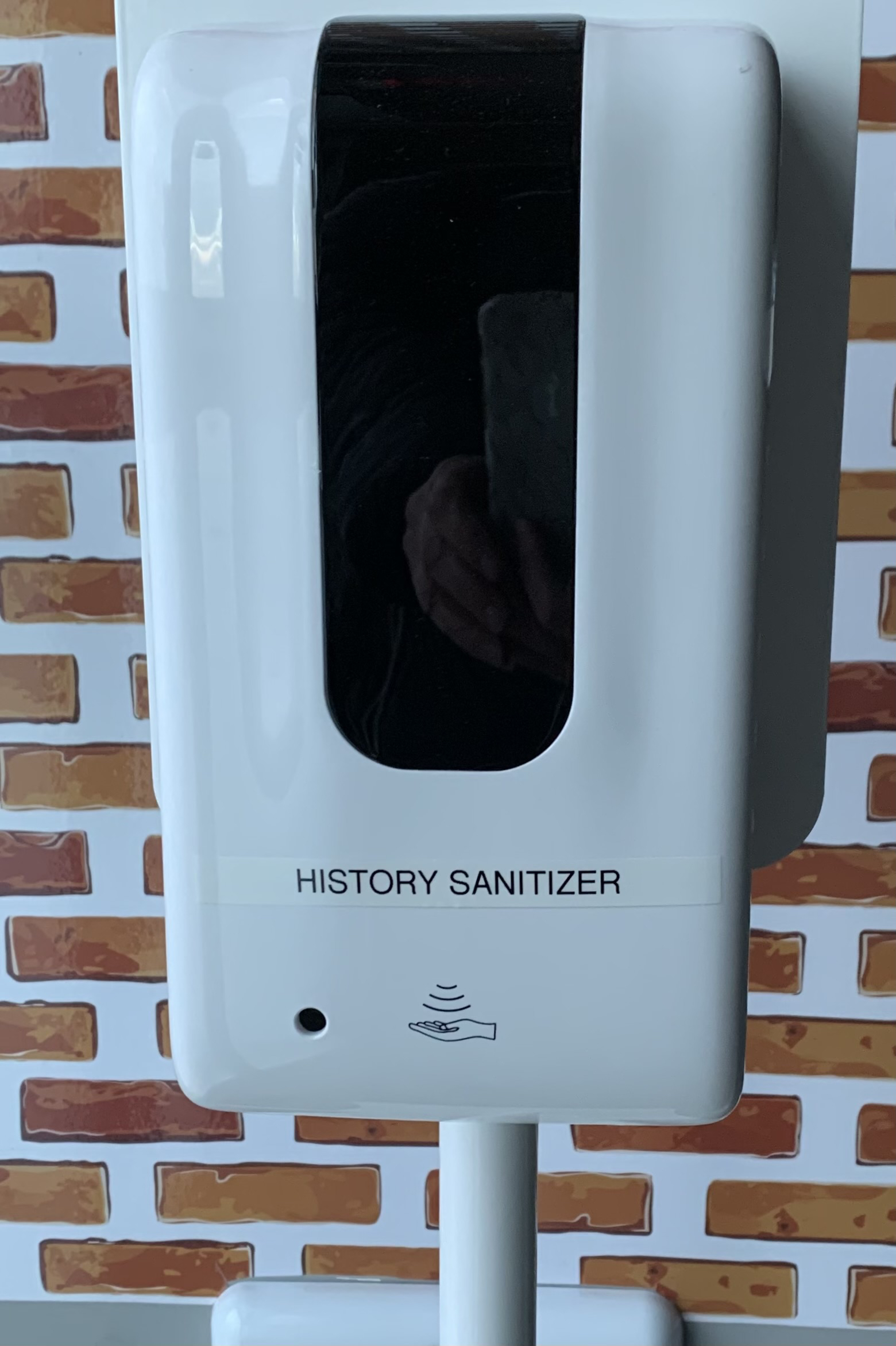History Sanitizer
Michelle Willard, Mighty Museum
Summer is here! As a small museum, you may have been closed for the off season, or since the pandemic hit, and have had to consider the feasibility of reopening and your ability to provide safe, physically distanced visiting opportunities.
Now is the time to examine sanitation practices. And I don’t mean your COVID-19 cleaning protocols. I am referring to identifying instances whereby seemingly uncomfortable histories may have been “sanitized” in favour of presenting a more comfortable version of history to visitors.
Some small museums are currently examining sanitized history exhibits left over from the inception of their museums in the 1970s and 80s. Uncomfortable histories were altered, glossed over or outright omitted in preference of dominant and comfortable colonial narratives.

Hand sanitizer station at a small museum on Vancouver Island, 2021.
Photo credit: Lorraine Bell.
So what should museums do with these sanitized exhibits? It is a complex process to undo the clean in a meaningful way. It takes time, resources, and skillful relationship building. Small museums are ideally situated to undo the clean given their long history of engaging with local communities. Undoing sanitized history is in effect a form of activism, as museum practitioners, along with their communities, push back and reject entrenched, long-standing narratives to build alternative ones.
We can feel encouraged by visitors who encounter uncomfortable and challenging histories in museums and say, “Yes! It’s about time! Thanks for telling it like it is! How refreshing!” Comments such as these left in museum visitor books confirm the desire for these stories to be incorporated into the museum experience. The comment “how refreshing” also points to museums’ past shortcomings in telling these stories.
This year, plant history seeds of justice, reframing the past for a better future! Let them blossom in new and engaging ways, and grow uncomfortable stories. Let them sprout up in your museums, edging in between the rocks of once-known truths. Let their unruly offshoots spread and climb the walls, taking over the space. Don’t cut them back. There is no need to shy away from telling it like it is. Museums can stop sanitizing history. The only sanitation practices needed going forward should involve Purell.
Michelle Willard is an anthropologist, museum professional, and the founder of Mighty Museum, offering services focused on the development of small museums and their unique challenges and needs.



